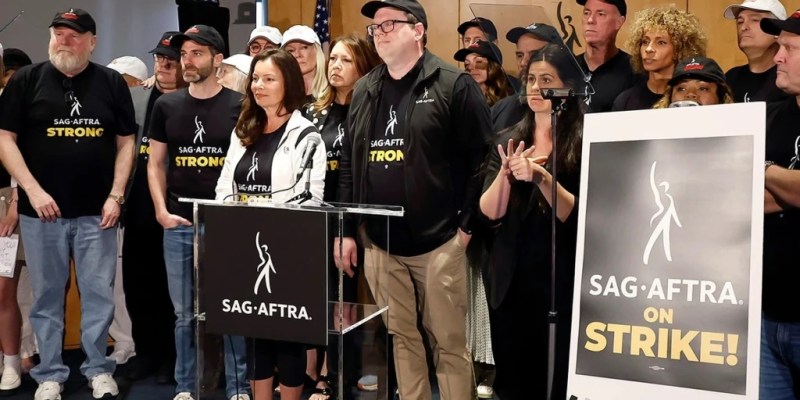If you’ve had even half an eye on the news or just casually browsed the internet, you’ll likely have noticed that there’s a joint writers and actors strike going on. You might even have seen some celebrities speaking their mind to camera. But what’s this all about? Here’s why Hollywood’s writers and actors are on strike.
Who’s On Strike?
There are two organizations that are on strike. The first is the WGA, the Writer’s Guild of America. The second is the Screen Actors Guild – American Federation of Television and Radio Artists or the SAG-AFTRA. Both of those organizations are labor unions, and together they’re made up of actors, singers, writers, and more from all across the USA.
Why Are The WGA and SAG-AFTRA On Strike?
They’re striking and protesting against the Alliance of Motion Picture and Television Producers (AMPTP) in an effort to negotiate a new agreement with the trade body. The AMPTP’s members include most of the major film TV companies, such as Walt Disney, Netflix, Sony Pictures, and many, many more.
So what do the WGA and SAG-AFTRA want? The obvious answer might be “more money”, and that is a factor. But it’s not quite as simple as that. They have serious issues with the way their members are treated by the big studios. They chose to strike because previous negotiations failed.
For example, both SAG-AFTRA and the WGA are after better residuals. Residuals, sometimes known as royalties, is the money people get when a show they’ve written or acted on is repeated. SAG-AFTRA in particular has concerns about the residuals rates on streaming shows.
SAG-AFTRA is also looking for a general wage increase over four years—11% general wage increase in year one, 4% in year two, and 4% in year three. When you factor in the US inflation rate (6.5% in 2022) that’s not as big a raise as you might think. Both organizations have stated they’re dealing with income erosion.
AI is also a concern for both. SAG-AFTRA wants “..informed consent and fair compensation when a ‘digital replica’ is made of a performer, or when their voice, likeness, or performance will be substantially changed using AI.”
The WGA also wants controls on the use of AI, the proposal being that “AI can’t write or rewrite literary material; can’t be used as source material; and (their members’) material can’t be used to train AI.”
You can read the SAG-AFTRA proposals here, and the WGA proposals here. But the answer to why are writers and actors on strike is that they believe, as SAG-AFTRA put it, “our careers … are now in jeopardy.”
